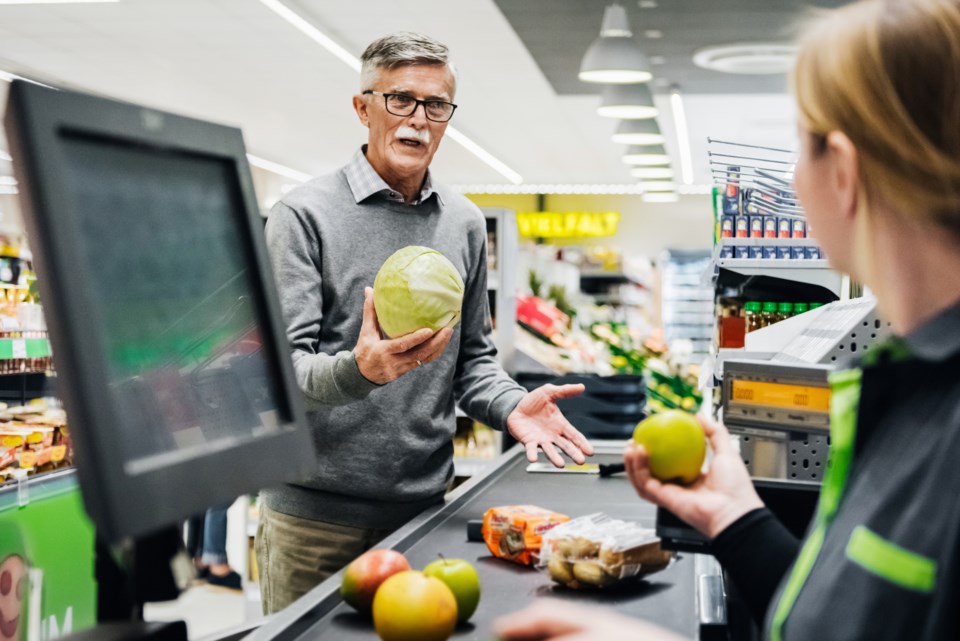Last month, Research Co. and Glacier Media reported on the changing perceptions British Columbians have of zero-emission vehicle mandates.
Since 2019, we had seen positive momentum in the likelihood of residents to make their next car electric. In our 2024 survey, after 2035 became the deadline for full adoption instead of 2040, only 50 per cent of British Columbians felt ready to make the switch at the next available opportunity, down nine points since April 2022.
Another topic that appeared to be dear to the hearts of British Columbians was the phase-out of single-use plastics. In 2021, after some municipalities implemented plastic bag bans in stores, 76 per cent of British Columbians told us that they were relying on their own re-usable bags. In January 2023, after the federal government banned the manufacture and import of grocery checkout bags, straws, stir sticks, six-pack rings, plastic cutlery and food takeout containers made from hard-to-recycle plastics, the proportion of British Columbians who brought their bags to grocery stores rose to 85 per cent.
In November 2023, the Federal Court overturned the single-use plastics ban, considering the policy “unreasonable and unconstitutional.” When we asked British Columbians about their behaviour earlier this month, 81 per cent told us they were still bringing their re-usable bags to stores, while 15 per cent were purchasing a bag at checkout.
The four-point drop in reusable bag reliance may not seem like much, but it is happening in the context of the recent rejection of the federal government’s policies. Some generational differences persist. British Columbians aged 18 to 34 are less likely to carry re-usable bags (65 per cent) than their counterparts aged 35 to 54 (78 per cent) and aged 55 and over (95 per cent).
In January 2023, the federal ban on single-use plastics was supported by 80 per cent of British Columbians and opposed by 16 per cent. This month, agreement with Ottawa’s rationale dropped to 71 per cent, while disagreement rose to 24 per cent.
Optimists could look at these findings and point to the fact that, even in the face of a recent defeat in court, seven in 10 British Columbians believe the federal government got it right when it banned single-use plastics. Pessimists might cringe after seeing that a quarter of residents in a supposedly environmentally friendly province deemed the measure as too invasive.
It is fascinating to see where the animosity towards the ban is coming from. Opposition is slightly higher among men (26 per cent), British Columbians aged 35 to 54 (27 per cent), residents of Northern B.C. (31 per cent) and voters who supported the BC Liberals in the 2020 provincial election (23 per cent). These demographics could describe a voter who might consider casting a ballot for the Conservatives, provincially and federally. We will have to see if this particular issue becomes important in the upcoming campaign trails.
Fewer than one in 10 British Columbians say they always buy biodegradable products (nine per cent, unchanged) and eat organic or home-grown foods (also nine per cent, up four points). The “unprocessed bandwagon” is led by the province’s youngest adults, with 16 per cent of residents aged 18 to 34 saying they go organic “all of the time,” compared to less than 10 per cent for their older counterparts.
Just over one in five British Columbians (21 per cent, up two points) always limit hot water usage in their home by taking shorter showers or running the washing machine or dishwasher only when its full. The proportion of residents who unplug electrical devices when they are not in use “all of the time” stands at 15 per cent (up three points).
Residents of B.C. – which pioneered recycling – have been exposed to many ad campaigns urging the need to hold on to bottles and cans until they can be placed into a proper bin. This year, 48 per cent of British Columbians (down one point) say they go out of their way to recycle “all of the time.”
On this matter, the behaviour of British Columbia’s oldest adults is exemplary. Two-thirds of residents aged 55 and over (68 per cent) say they always recycle properly, compared to 35 per cent of those aged 35 to 54, and 36 per cent of those aged 18 to 34. While more than half of British Columbians who voted for the BC NDP in 2020 claim to recycle “all of the time,” the proportions drop to 48 per cent among BC Liberal voters and 35 per cent among BC Green Party voters.
Most British Columbians are still on board when it comes to the elimination of single-use plastics. Those who have embraced reusable bags are still in the majority. However, there are some who are expressing dismay at the new rules and regulations. These constituents, who may already be upset at the federal and provincial governments for other perceived misdeeds, may find in plastic another reason to look for change.
Mario Canseco is president of Research Co.
Results are based on an online study conducted on Feb. 5-7, 2024, among 800 adults in B.C. The data has been statistically weighted according to Canadian census figures for age, gender and region in B.C. The margin of error is plus or minus 3.5 percentage points, 19 times out of 20.




